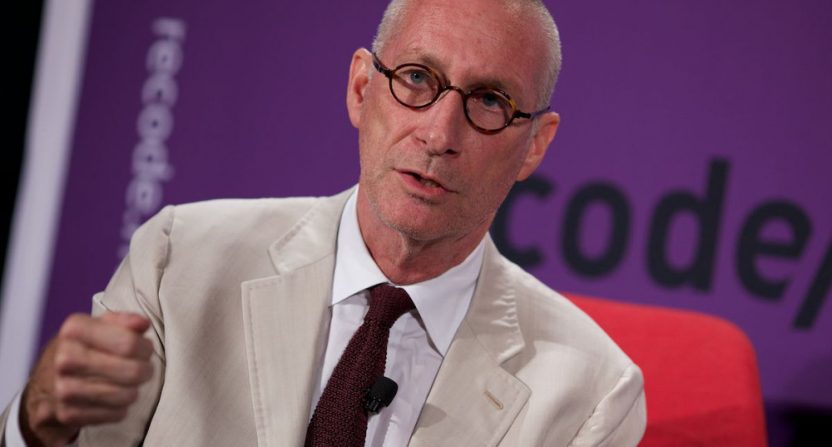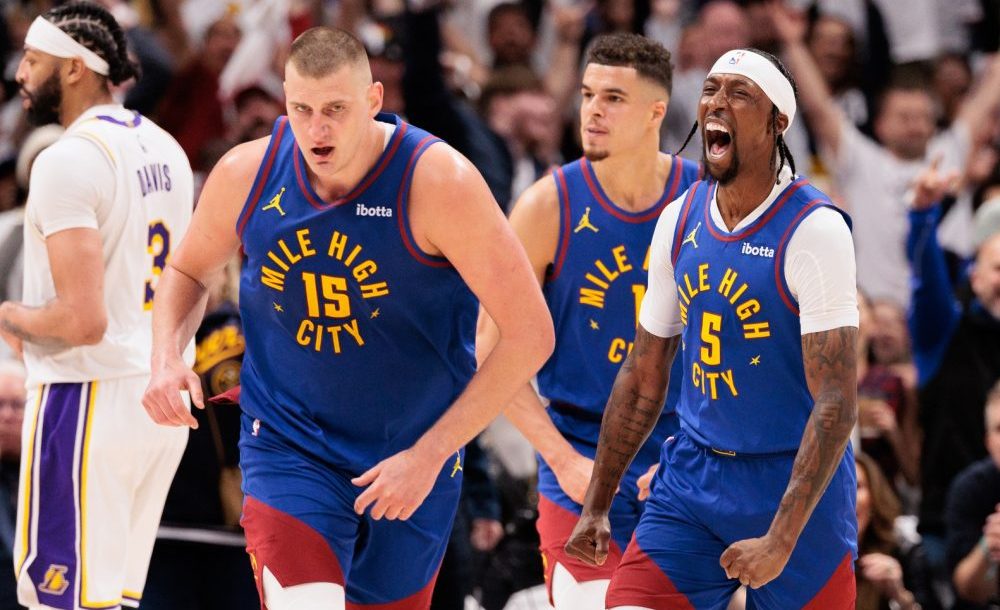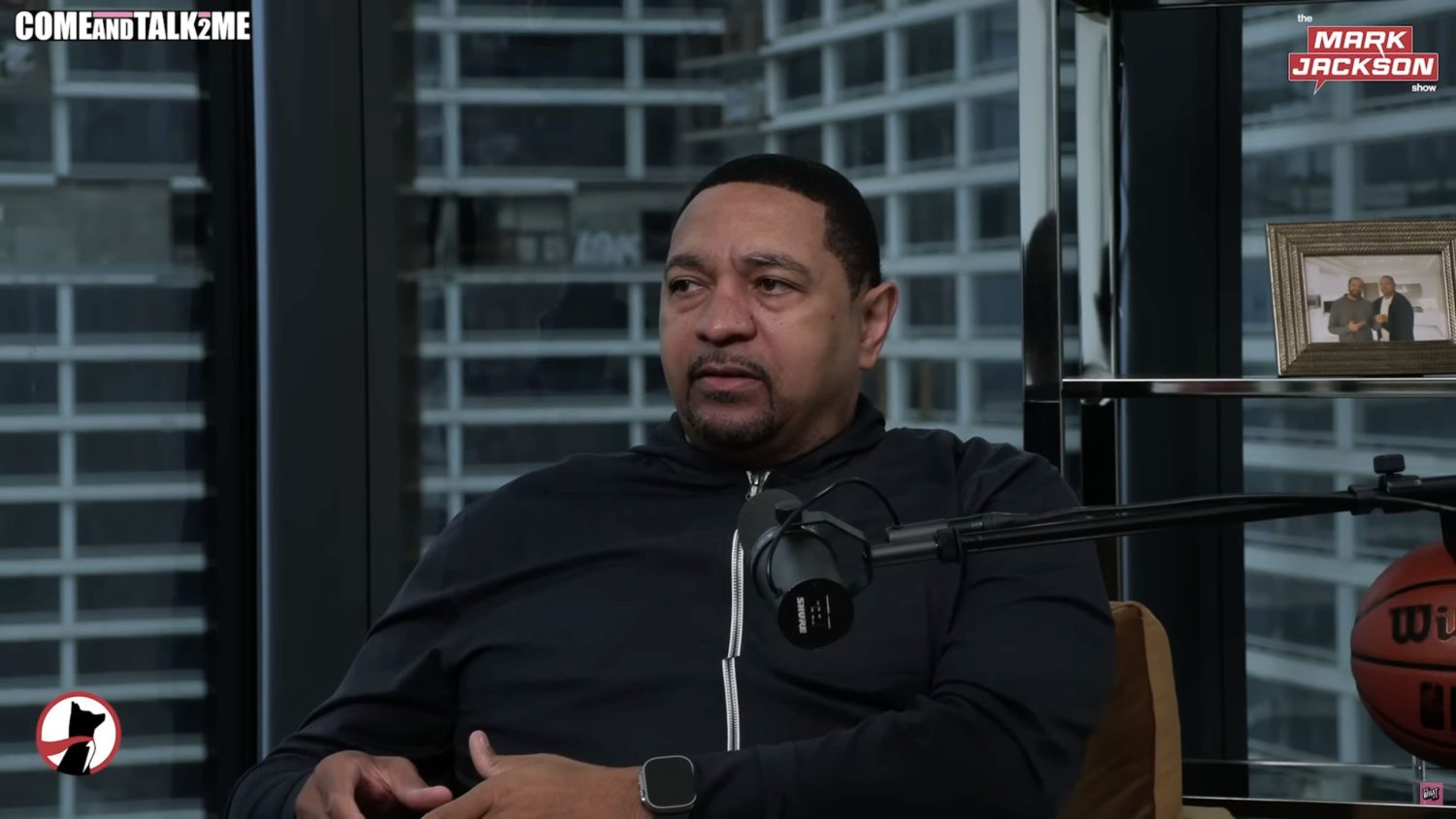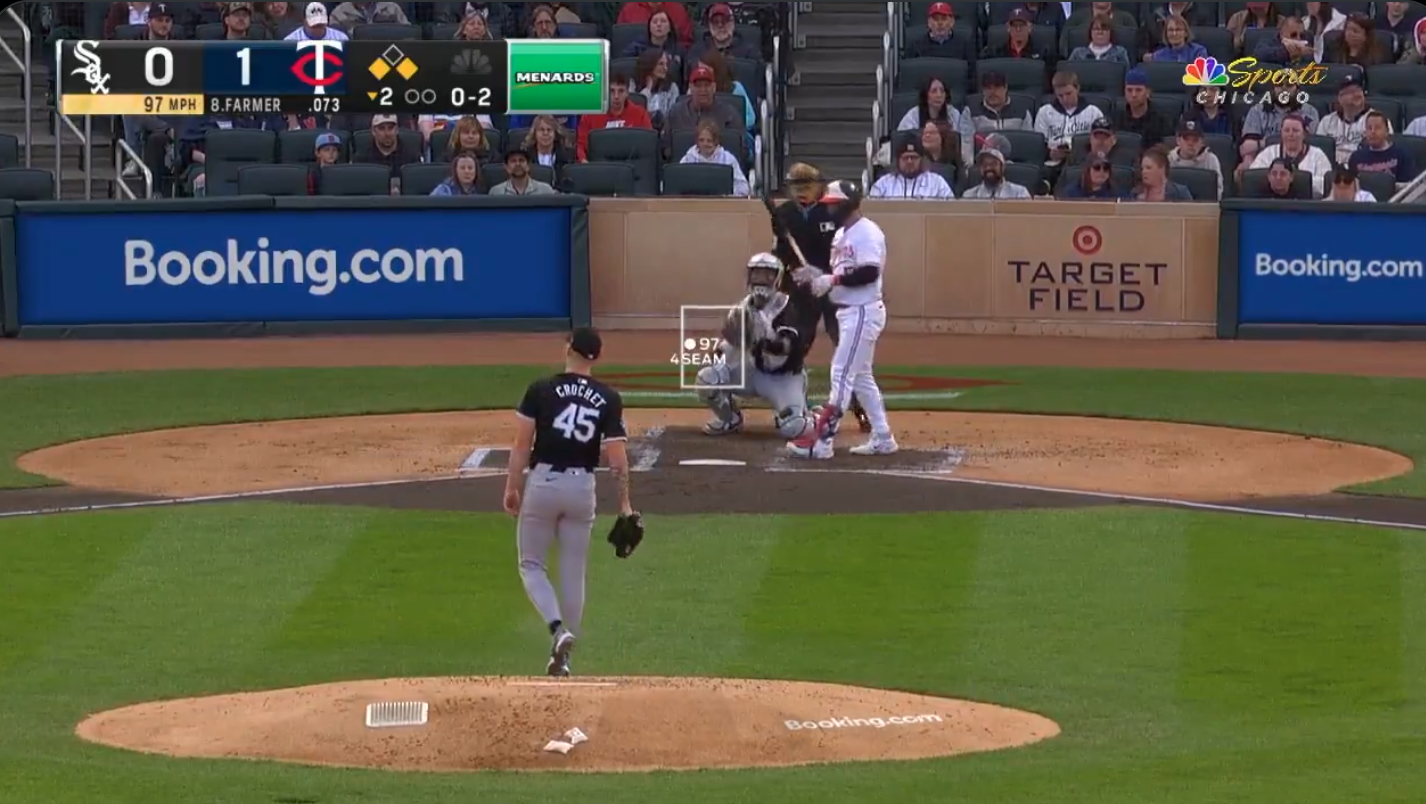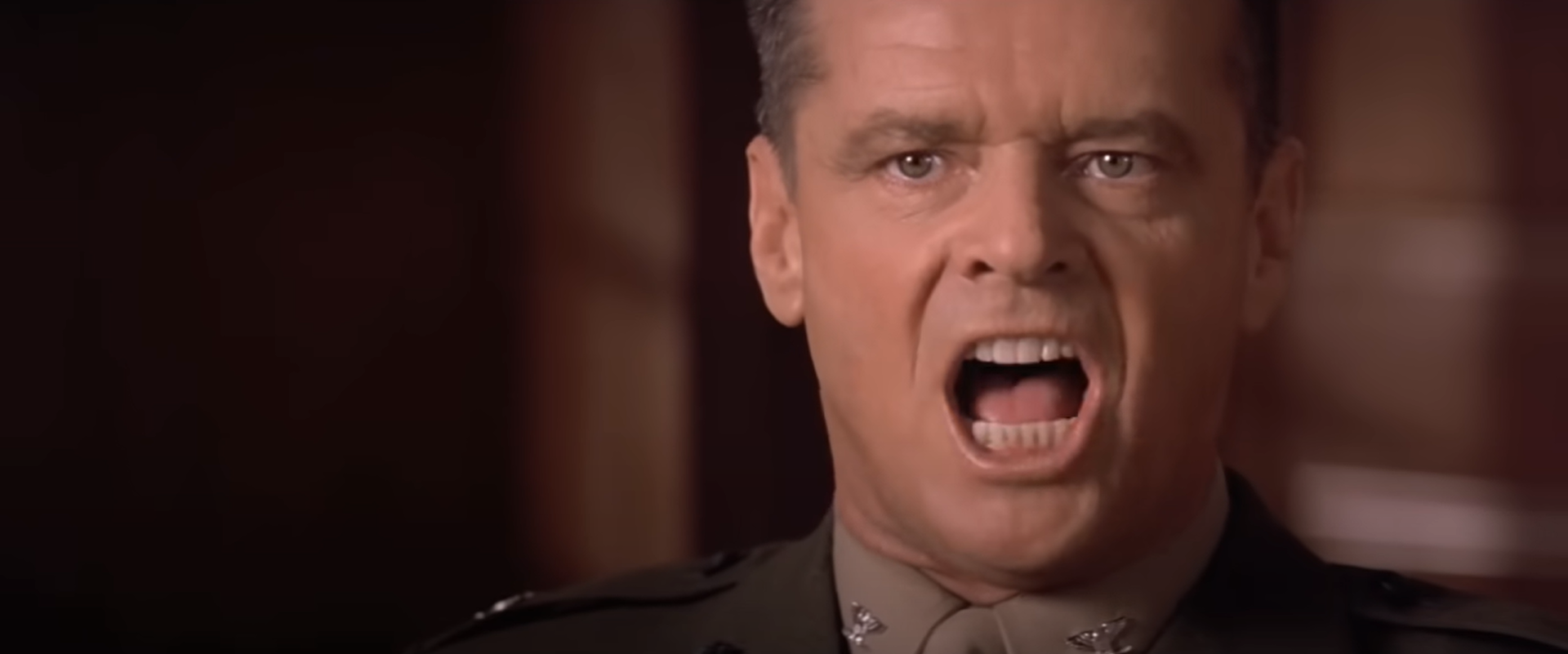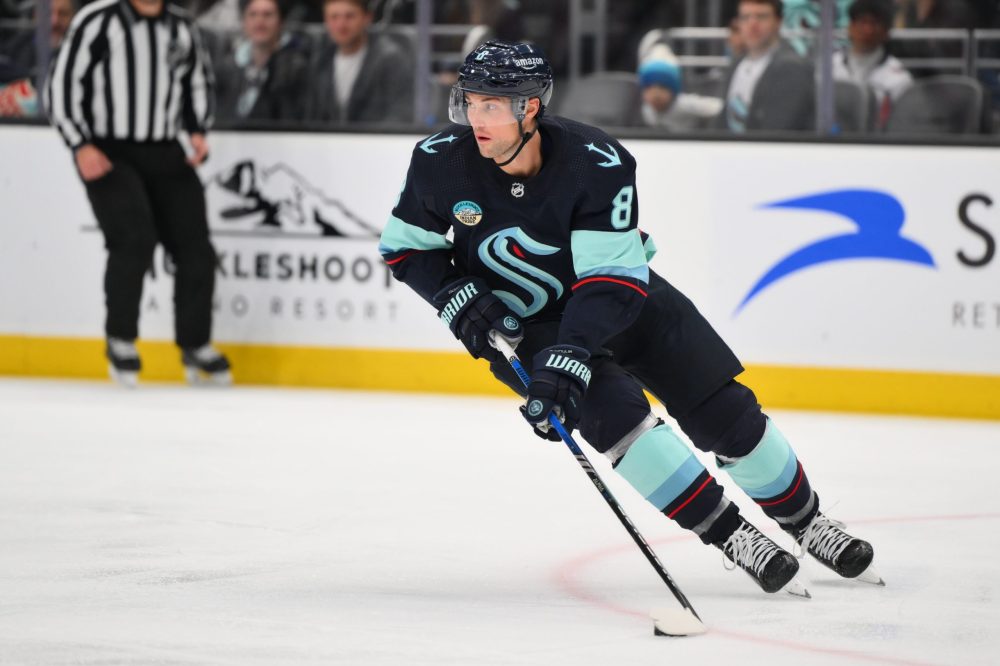One of the things that’s been interesting to watch with former ESPN president John Skipper over the years is the way he discusses “voids” that don’t actually exist. This somewhat happened during his time at ESPN, perhaps especially in his comments pumping up their work in soccer, podcasting, and sports documentaries (especially the 30 for 30 series); many promising entries in all of those areas existed outside of ESPN at the time, but Skipper (seen above in 2017) chose to bill the company’s efforts as more groundbreaking than they actually were. This then happened even more during Skipper’s DAZN period, where he extensively talked about all the changes DAZN was going to bring to the U.S., many of which did not happen.
Now, with Skipper at Meadowlark Media, he’s doing a similar thing. He’s playing up how revolutionary their approach is and ignoring all the other people already doing it. Here’s some of that from an interview he did with Bloomberg’s Lucas Shaw, an interview very generously headlined “ESPN’s Old Boss Has a New Plan: Bring Sports to Streaming” (as if sports content wasn’t already and extensively there). Shaw’s questions are bolded, Skipper’s responses are not.
Let’s start with the easy one: What is Meadowlark Media?
We are created to fill what I regard as a void in world class non-event sports content. Streaming services generally underrepresent sports. There is just not a lot of sports content in any genre on Netflix, Hulu, Paramount +, HBO Now or Discovery Plus.
Our intention is to provide that across all kinds of genres — audio, terrestrial radio, podcasts, documentaries, unscripted reality. We will start in sports, but I don’t think we view ourselves as having to completely stay rooted there.
That is just an amazing comment from Skipper on several levels. For one, he gets the HBO streaming service’s name wrong (it’s HBO Max; HBO Now was a quite different service focused on over-the-top access to HBO only, and was rolled into HBO Max last year). For another, “there is just not a lot of sports content in any genre” is just wrong when it comes to most of the services he mentions; consider all the things we’ve written on non-event sports content on Netflix, Hulu, Paramount+, and HBO Max . (We’ve written less on Discovery and Discovery+, but there’s some there too.)
And we certainly haven’t covered all the sports content on those services. And in the cases of Netflix, HBO Max, and Hulu, much of that sports content is non-event sports content, specifically documentaries. And that’s before you get to the sports content at ESPN+, the primary sports streaming branch of Skipper’s company twice removed (and one with a significant documentary library), or the sports content at DAZN, his company once removed, or the sports content on other streaming platforms (such as NBCUniversal’s Peacock, or the shows companies like Bleacher Report, SB Nation, and Yahoo are doing through their website and social channels, or many more).
The remarkable thing about Skipper’s incorrect assessment of what’s already out there is that it undermines what’s otherwise a reasonably solid presentation of what Meadowlark Media may be able to do. In fact, he makes quite reasonable comments on podcasting (summarized: there are far too many podcasts for the amount of ad dollars in the form at the moment, but they’re relatively cheap to produce, and Meadowlark has enough established personalities and radio/podcast traction that they should do okay there, but it’s not the whole focus for them). And his assessment of the number of streaming services looking to buy third-party sports documentary content seems quite plausible. Here’s more on that from later in Shaw’s piece:
Where do documentaries fit into that?
The content you need for retention is complementary content to the first core games. You don’t need a big library. You need shows about Serie A to get Serie A fans on. When ESPN+ gets there, they’ll discover they need a lot less studio shows. If people come on six to eight times a month, it’s enough.
Services in the U.S. will find themselves squeezed with increased rights costs and decreasing pay-TV revenues. They will need complementary content, and they will buy from third parties instead of retaining large staff to do their own.
If they have so many people working on studio shows who won’t have much to do, why would they go to a third party instead of doing it in-house?
They have lots of resources, and lots of people internally who don’t have enough to do. They wont find enough for them to do. They will lay them off. They will find going to spend a couple million dollars on a documentary from a third party will be more efficient than making it yourself.
A lot of that has already happened. In fact, some of that can be tied back to the 30 for 30 series at ESPN under Skipper’s leadership; a few of those films were largely with internal talent, including directors, but in even the first series, a lot of the films were made by working with already-prominent external directors for that specific project. There’s absolutely still significant ESPN involvement with all things 30 for 30, but many of those films have not been complete in-house projects.
And that’s even more the case with what we’ve seen with documentaries at HBO/HBO Max and Netflix. Those companies often also have some involvement in the final product, but most of the documentaries they’re showing aren’t made in-house, but rather either commissioned from a third party (before the film’s made) or brought in from a third party in a distribution deal after the film’s made. There are definite efficiencies to doing sports documentaries that way, especially for non-ESPN companies that don’t already have a large amount of in-house people specifically focused on sports documentaries.
And there’s absolutely a strong case that Meadowlark Media can find their niche in this ecosystem, and can do well creating strong documentaries and selling them to streaming services. Skipper’s former colleague Bill Simmons has done something similar with Ringer Films, and countless other filmmakers have done well making sports documentaries for streaming services. And with Skipper, Dan Le Batard and the many more prominent people they have (it’s notable that their latest round of podcasts includes the Shutdown Fullcast After Dark, a Grant Wahl/Landon Donovan/Chris Wittyngham soccer show, a Le Batard/Ricky Williams show, a Renee Montgomery show, and a Kate Fagan/Jessica Smetana show), Meadowlark has a strong roster of talent that will likely be appealing to streaming services.
But that just goes to show how unnecessary Skipper’s over-the-top claims about this “void” here are. What Meadowlark is actually doing looks like a solid business plan, and the people they have involved give them a good chance of doing well with it. They don’t need to pretend the competition doesn’t exist in order to succeed. It should be noted that Skipper is far from the only executive to overstate the uniqueness of his company, especially at a startup, but it’s still unnecessary. Most companies in any field are not revolutionary; most of them do a fine job of providing a product or service despite competition. Meadowlark may be able to do the same.
And it’s at least somewhat remarkable that Skipper can get away with pretending that competition isn’t there in comments to a sports media interviewer. When he was running ESPN, it wouldn’t have worked for him to claim that NBC and Fox weren’t doing cable sports content, and even when he was at DAZN, he didn’t try to claim his company was the only one chasing NFL Sunday Ticket. This isn’t the first audacious claim Skipper has made, but it does seem to detract from the actual selling points his new company has.

